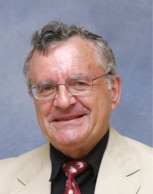“You and I, we will change the world,” go the words of a popular Hebrew song. But how many of us truly believe this is possible?
More than at any time in history, there is tremendous need for world-changing innovators. Why? Because globalization and the ideology of free markets have led to sharp shrinkage in public services and to an enormous increase in the gap between rich and poor. Unless addressed, this gap will be (and in some ways is already) threatening for world stability. Innovators can and must address desperate, pressing social problems: hunger, illness, poverty, stagnation, inequality.
A social innovation is an idea that addresses and solves a pressing social problem and meets a social need. Here is one example. Mohammed Yunus, a Bangla Deshi economist, won the 2006 Nobel Peace Prize for launching Grameen Bank, a bank that provides micro-finance loans to poor villagers. In 1974 Yunus went out to a village to find out why villagers were starving, and learned that lack of credit was keeping villagers in poverty. He lent them $27 – and got it all back, to his surprise. Those $27 changed the villagers’ lives. He went on to start a bank that made small loans to villagers in many countries, to replace usurious interest rates of 100% or more. As of 2006:
• Total number of borrowers is 6.67 million, and 97% of those are women
• 2,247 branches (as of May, 2006) covering 72,096 villages, with a total staff of over 18,795
• Loan recovery rate is 98.85%
• Since inception, total loans distributed amount to US$ 5.72 billion. Out of this, US$ 5.07 billion has been repaid.
Yunus, a social entrepreneur and innovator, changed the world. And he is not alone.
Rick Aubry is President of Rubicon Programs, an American organization founded in order to provide the homeless with housing, training and employment in one of its businesses. For instance, Rubicon Bakery distributes desserts to 2,000 supermarkets across the U.S. Rubicon has generated jobs for some 40,000 people, since 1973, funding half of its $16 m. annual budget from revenues generated by its businesses. Aubry says, “Social enterprise 2.0 must impact to a magnitude 100 times that of achievements to date”, because the needs are so great.
America’s Public Broadcasting System, and its series New Heroes, showcase social entrepreneurs. (See www.pbs.org/opb/thenewheroes/).
“A social entrepreneur identifies and solves social problems on a large scale,” notes the PBS series. “Just as business entrepreneurs create and transform whole industries, social entrepreneurs act as the change agents for society, seizing opportunities others miss in order to improve systems, invent and disseminate new approaches and advance sustainable solutions that create social value. Unlike traditional business entrepreneurs, social entrepreneurs primarily seek to generate “social value” rather than profits. And unlike the majority of non-profit organizations, their work is targeted not only towards immediate, small-scale effects, but sweeping, long-term change.”
PBS reports that an Indian doctor, Dr. Venkataswamy, instead of retiring at 65, mortgaged his home and opened a hospital to perform free or low-cost cataract surgery on poor Indians. (A million or more villagers are blind due to cataracts, a condition easily curable by lens-replacement surgery – but not affordable to the villagers). In his first year, Dr. V. performed 5000 surgeries. Social entrepreneur David Green showed Dr. V. how to reduce the cost of a cataract lens from $150 (unreachable for Indian villagers). Their company, Aurolab, makes products used by eye care institutions and ophthalmologists in more than 120 countries. The factory produces hundreds of thousands of lenses each year — 10 percent of the world supply — at $5.00 a pair. The company turns a profit of thirty percent on its investment. With the revenue stream produced by Aurolab, Dr. V. has been able to open five new eye hospitals in southern India.
An outstanding example of social entrepreneurship is Nicholas Negroponte’s OLPC “one laptop per child” project. The project will mass-produce laptops, aiming at a $100 delivery price, within the means of millions of children in developing countries. (See www.laptop.org). Where they have been provided, such laptops have fundamentally changed the way children are educated. They have changed the world.
I expect we will see social entrepreneurs proliferate worldwide. Members of Generation Y, the generation following Generation X and the baby-boomers, seek to find meaning in their lives, more so than their parents and grandparents. Many will do so by trying to do good for others, far more than trying to do well for themselves. In doing so, they will change our world for the better – and fill the huge gap now created by incompetent bureaucrats and shrinking public resources. They will use the principals of innovation to become not Bill Gates – but Muhammad Yunus or Nick Negroponte or Rick Aubry or Dr. Venkataswamy.
Shall we try to join them?
-David Bornstein. How to Change the World: Social Entrepreneurs and the Power of New Ideas.


Leave a comment
Comments feed for this article